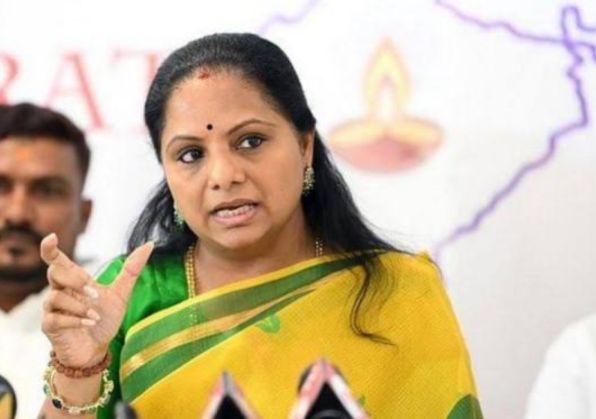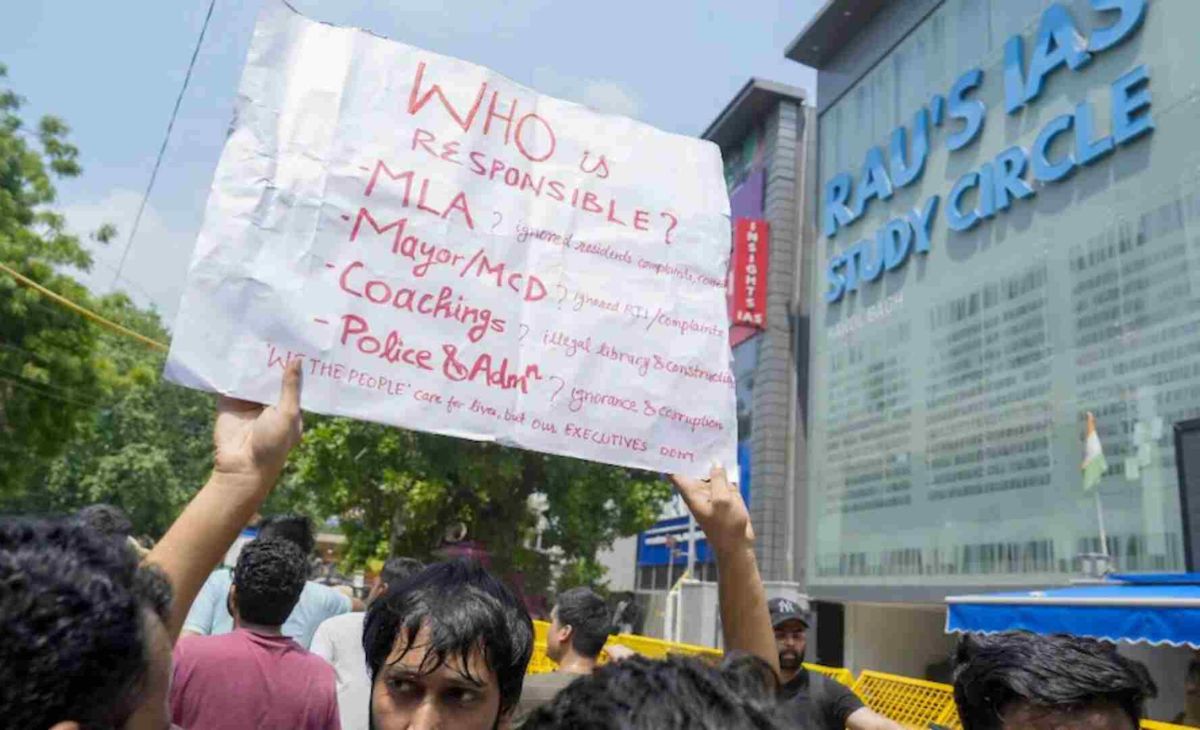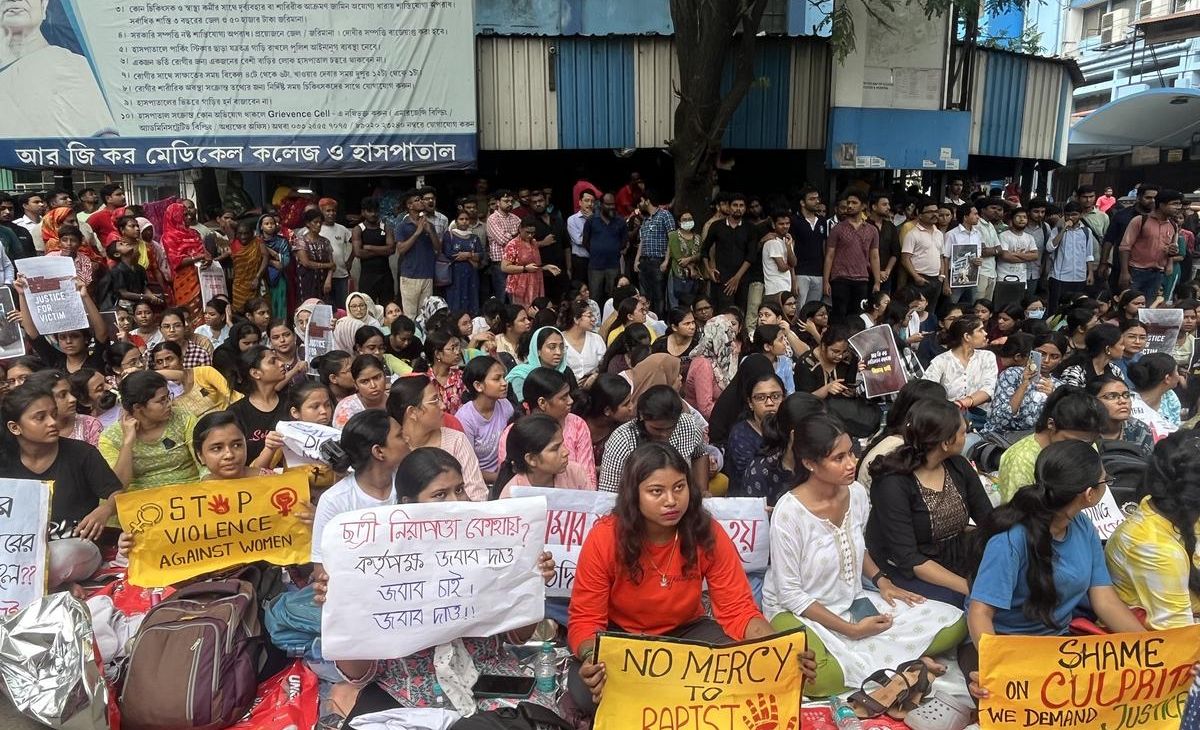The ongoing Delhi excise policy case has taken another turn with the Supreme Court granting bail to Bharat Rashtra Samithi (BRS) leader K Kavitha. This decision, hailed by some as a victory for justice, has ignited political controversy, particularly with allegations from Union Minister Bandi Sanjay Kumar accusing the Congress of securing Kavitha’s bail. The tension between political factions, the intricate nature of the case, and the judicial process culminate in a complex narrative of power, law, and politics.
The Supreme Court’s Decision: A Legal Perspective
The Supreme Court’s decision to grant bail to K Kavitha, who had been in custody for nearly five months in connection with corruption and money laundering cases linked to the Delhi excise policy scam, has sparked both relief and controversy. The decision came from a bench comprising Justices B R Gavai and K V Viswanathan, who concluded that the investigation conducted by the Central Bureau of Investigation (CBI) and the Enforcement Directorate (ED) was complete, thereby justifying bail. The Supreme Court also set aside the July 1st ruling by the Delhi High Court, which had earlier denied her bail.
Kavitha, the daughter of Telangana Chief MinisterK Chandrashekar Rao (KCR) and a sitting Member of the Legislative Council (MLC) in Telangana, had been under the scanner for her alleged involvement in the Delhi excise policy scam. The case is part of a broader investigation into alleged irregularities and kickbacks related to the distribution of liquor licenses in Delhi, which has been the subject of intense scrutiny by the ED and CBI.
The legal grounding for granting bail after prolonged detention focuses on the principle of a fair trial. Since Kavitha had already been in custody for five months and the investigations were reportedly concluded, the court likely considered that continued detention without trial could infringe upon her constitutional rights. The bail does not imply an exoneration but allows her temporary release pending further trial proceedings.
Political Accusations and Union Minister’s Claims
While the legal verdict signaled relief for the BRS camp, Union Minister Bandi Sanjay Kumar’s sharp comments brought a political dimension to the case. Using the social media platform X (formerly Twitter), Kumar accused the Congress party of maneuvering behind the scenes to secure Kavitha’s bail. He claimed that this was a strategic collaboration between Congress and BRS, going so far as to say that the Congress party’s efforts had borne fruit by ensuring Kavitha’s release.
Kumar’s post on X stated, “Congratulations to the Congress party and its advocates for securing bail for BRS MLC in the infamous liquor scam. Your untiring efforts finally yielded fruits. This bail is a win for both BRS and Congress—BRS leader is out on bail & the Congress man gets to Rajya Sabha.”
The reference to the Congress leader’s supposed promotion to Rajya Sabha sparked significant debate. Kumar insinuated that there was political bargaining at play between the BRS and Congress, alleging that the Congress leader who initially argued for Kavitha’s bail was now unopposed in their bid for a seat in the Rajya Sabha, thanks to BRS support.
Counterclaims by BRS and K Kavitha’s Defense
K Kavitha’s brother, KT Rama Rao (KTR), quickly came to her defense. KTR, who also serves as the working president of the BRS, criticized Kumar’s remarks, stating that the Union minister’s comments were inappropriate given his high-ranking position. In a pointed response, he posted on X:
“You’re a Union Minister in charge of Home Affairs & casting aspersions on the Supreme Court!! Highly unbecoming of your position. I respectfully urge the Hon’ble Chief Justice of India & the respected Supreme Court to take cognizance of these comments and initiate contempt proceedings.”
KTR had earlier expressed relief on social media, thanking the Supreme Court for granting bail to his sister and proclaiming that justice had prevailed. While the bail is seen as a legal victory by the BRS, the political accusations from the opposition added a layer of complexity to the already tense atmosphere surrounding the case.
Political Dynamics and Ramifications
The BRS and Congress have historically been rivals in the Telangana region, but recent developments have suggested potential realignments in Indian political dynamics, especially in light of upcoming elections. Accusations of backdoor deals, political quid-pro-quo, and alliances have become commonplace, and this latest accusation of a Congress-BRS collaboration adds to the growing discourse on the evolving political landscape in the country.
From a numerical standpoint, the involvement of the Congress in securing a Rajya Sabha seat due to BRS’s support, as alleged by Kumar, presents an interesting dynamic. This could potentially affect the distribution of power in the Rajya Sabha, as each party seeks to strengthen its presence in the upper house of Parliament.
The bail granted to Kavitha has stirred the political pot, raising questions about the timing of her release and the larger implications for the ruling and opposition parties in the region. With Telangana set for assembly elections, political maneuvers and accusations such as these can significantly impact voter perception and party alignment.
Conclusion
The Supreme Court‘s decision to grant bail to K Kavitha has not only provided her temporary relief but also ignited a political storm. Union Minister Bandi Sanjay Kumar’s allegations, countered by KTR’s defense, underscore the fragile nature of political relationships in the country. While the legal process will continue, the political ramifications of this decision may shape future alliances, accusations, and election outcomes.
This incident highlights how legal proceedings and political dynamics often intertwine, especially in high-profile cases. As both parties rally their support bases, the unfolding drama of the Delhi excise policy case will likely remain a focal point in India’s political landscape.
Disclaimer: The content provided in this article is based on publicly available information and statements from key political figures. All views expressed are those of the respective individuals quoted and do not represent the views or opinions of this platform. The information in this blog is not intended to influence any ongoing legal proceedings or political stances but to provide an in-depth analysis of current events.




